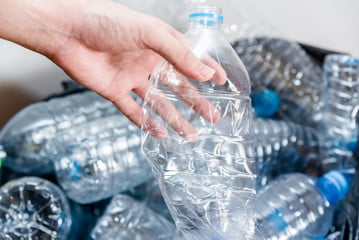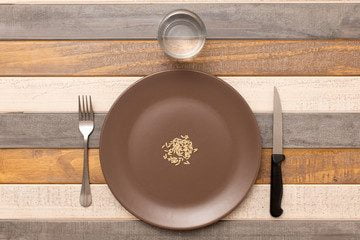
Preppers sometimes make mistakes. I know I have! It’s a learning experience for certain! For the most part, prepping mistakes are difficult to make, but this one seems popular: storing rice in a used soda bottle.
There are several reasons why this is a bad idea, but there are also alternatives to the problem. Reusing soda bottles for food
and water storage is more misinformation than anything, but it is a dangerous concept and one that keeps circulating on the Internet. Here is why you should NOT use a used soda bottle for food storage:
- Bacteria – Bacteria can grow in a used soda bottle. Sure, you could TRY to sterilize the bottle first, but the plastic is likely to melt before all of the bacteria and other organisms can be killed off. Warm soapy water can help, but it also might not be enough. Canners understand this, as botulism is of the utmost concern. No one wants to get sick from eating the food you’ve stored for when the SHTF.
- Leaching – even if you are successful at completely sterilizing your plastic bottle, said bottle will leach into the food you’ve stored in it. Soda bottles are far from high-quality plastic and the chemicals in the soda have likely already started breaking down the plastic. This process won’t stop when you put food for consumption in one of these bottles.
But, the good news is that the solutions are fairly easy and inexpensive. Obviously, it’s better to store your food in a used soda bottle than not store food at all, however, consider attempting to keep your food in something other than BPA-laced plastic. Some options are:
- Glass Containers – these can be boiled for long periods of time making complete sterilization possible. They won’t degrade or break down when scrubbing with soapy water and steel wool. There’s a reason why canners and preppers choose glass, and while it may cost more, it can be sealed off and you can prevent any contamination. Those living in earthquake zones though should consider something else, as glass is easily breakable.
- Mylar Bags – these are perfect for those who live in earthquake zones. Mylar bags are ideal food storage containers because they keep light from reaching your food. With the help of oxygen absorbers and a plastic food-grade bucket, you can keep food stored for upwards of 25-years in mylar bags. The nice thing too is that you can divvy up your supplies into small portions. This has the advantage of keeping vermin segregated if they get into your stores.
- Stainless Steel – Stainless steel is the safest alternative for replacing a plastic water bottle. I use them to store leftover food in the refrigerator as opposed to plastic. Not only does stainless steel resist stains, but it also has antibacterial qualities, making it an excellent option for food storage. It’s also not breakable like glass, but it is likely to cost you more.
Don’t make this common mistake when prepping. Make sure your food is stored as safely as your budget will allow. Not much will be worse than getting sick during an emergency. Save those used soda bottles for mosquito traps!
Happy Prepping!





0 Comments